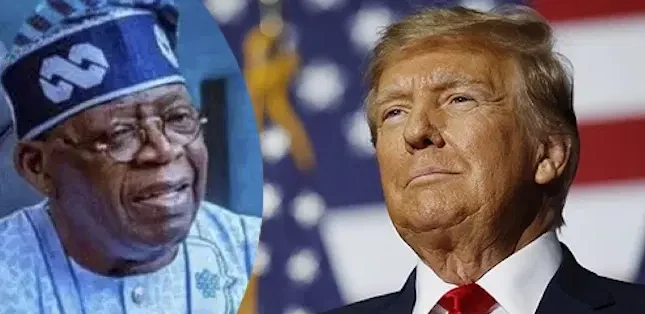According To A Report From Vanguard, ABUJA — The United States government has raised concerns over security and justice delivery in the country, citing cases of enforced disappearances and arbitrary detentions.
But the Presidency in a swift reaction last night, said the country’s judicial system was not only addressing concerns about lengthy pre-trial periods, alongside other issues, but that the Federal Government is also stabilising the naira and re-calibrating the economy generally.
However, in its Country Reports on Human Rights Practices for 2024, released by the Department of State, Bureau of Democracy, Human Rights and Labour, the US also identified lengthy pre-trial detention and delays as major challenges facing justice delivery in Nigeria.
The report also said the new minimum wage of N70,000 had been undermined by the continued depreciation of the naira.
While quoting Amnesty International as saying the whereabouts of “dozens of young men detained at SARS Awkuzu,” a former police station in Anambra State, remains unknown since disbandment of SARS in 2020, the report stated: “Police and other security services had the authority to arrest individuals without a warrant if officials reasonably suspected a person committed a crime. Security forces sometimes abused this authority.
“The law required subjects be brought before a magistrate within 48 hours and have access to lawyers and family members.
“According to the law, initial pre-trial detention orders were not to exceed 14 days. In some instances, government and security employees did not adhere to this regulation. The report noted further that bail provisions were often arbitrary, with suspects kept incommunicado and sometimes incarcerated indefinitely in investigative detention.
“In their prosecution of corruption cases, law enforcement and intelligence agencies did not always follow due process, arresting suspects without appropriate arrest and search warrants,” the report stated.
On the judiciary, the US identified lengthy pre-trial detention and delays as major challenges, saying
“Some detainees were held in pre-trial detention for periods equal or exceeding the maximum sentence for the accused crime.
“The shortage of trial judges, trial backlogs, endemic corruption, bureaucratic inertia, and undue political influence seriously hampered the judicial system.
“Some detainees had their cases delayed because the Nigeria Police Force and the Nigerian Prisons Service did not have vehicles to transport them to court. Some individuals remained in detention because authorities lost their case files.’’
New minimum wage eroded
The report also said the new N70,000 minimum wage had been completely eroded by the continued devaluation of the area
It noted that the new wage, pegged at about $47.90 per month, had lost its value due to the naira trading at over N1,500 to the dollar.
The report, which added that firms with fewer than 25 workers did not benefit from the wage increase, stated: “The National Minimum Wage (Amendment) Act 2024 doubled the minimum wage to N70,000 ($47.90) per month.
“Despite the increase, currency devaluation meant the minimum wage was no longer higher than the poverty income level. Many employers had fewer than 25 employees, so most workers were not covered.’’
The law provides a national minimum wage for employers with 25 or more full-time staff, with exceptions for seasonal agricultural workers, part-time employees, and commission-based roles.
The US report further observed that some states had declined to implement the law, citing financial constraints, and also pointed out gaps in enforcement.
It stated: “The law did not define premium pay or overtime and prohibited excessive compulsory overtime for civilian government employees, stressing that the government rarely effectively enforced minimum wage and overtime, while penalties were low and not commensurate with other crimes such as fraud.” According to the report, between 70 and 80 per cent of Nigeria’s working population operates in the informal economy, where authorities fail to enforce wage, hour, and occupational safety and health laws.
On child rights, the US flagged concerns over early marriage, despite federal laws stipulating 18 years as the minimum age. “Federal law sets a minimum age of 18 for marriage for both boys and girls. While 35 states, except Zamfara State, adopted the law, many states, especially northern states, did not uphold the federal minimum age.
“In some states, children as young as 11 could be legally married under customary or religious law.
“The government worked with local and international partners to engage religious leaders, emirs, and sultans on the issue, emphasising the health hazards of early marriage,” the report emphasised.
Concerns In Report Being Addressed — Presidency
Reacting to the US report, the Presidency, in a statement by the Special Adviser to the President on Media and Public Communications, Sunday Dare, said the judicial system in the country is addressing concerns about lengthy pre-trial periods, alongside other issues.
He also said there is better coordination of security efforts from all security agencies, adding that several security challenges the country was facing had abated.
The presidential spokesman, who noted that recalibration of the economy had started yielding positive results, said on security: “The US, through its Nigerian Mission, only recently praised the Nigerian security apparatus and the Bola Tinubu government over the arrest of two leaders of the Ansaru terrorist group.
“It’s a validation of the efforts being made to address the security situation internally and externally. There is much coordination of security efforts from all outfits, and several security challenges have abated.
“The US recognised these efforts as significant. The security clean-up is a continuous effort.”
On US concerns about the judicial system in the country, Mr. Dare said: “Our judicial system continues to address concerns about lengthy pre-trial periods alongside other issues. These challenges are abating, even as the Nigerian government has initiated several judicial reforms to improve Nigeria’s justice system.
“The national summit on justice was declared open in April last year by President Bola Tinubu.’’
On other issues, including the economy, he said: The naira has stabilised. That we can see. The economy is undergoing a recalibration, and we see positive numbers from macroeconomic indicators. The naira will strengthen with time.”


